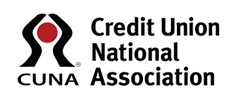Credit union members nationwide are more likely to say that credit unions improve their financial well-being compared to customers of other financial institutions, according to a white paper issued by CUNA this week.
“[F]inancial institutions that prioritize the needs of members, employees, and community usually outperform those that pursue other approaches to creating value,” the white paper states. “As not-for-profit, member-owned, and democratically controlled depository institutions, credit unions deliver big financial and nonfinancial benefits to their members.”
The white paper, “Credit Unions Lead in Improving Well-being for All,” indicates that credit union members are also twice as likely to take advantage of financial counseling and education classes, engaging with their not-for-profit, member-owned credit union to build a more stable foundation for success.
The white paper consists of a survey of 2,500 voters and finds that credit union members are more likely to say that their financial institution has a “very positive” impact on their financial well-being than those who identified as bank-only customers (44% to 29%).
Respondents were also more likely to associate their credit union with serving a socio-economically diverse membership, granting easier access to low-cost loans, and having a more meaningful connection with their community. Bank-only customers were more likely to report that they don’t have $500 in savings to cover an emergency, long a measure of financial well-being, according to the white paper.


